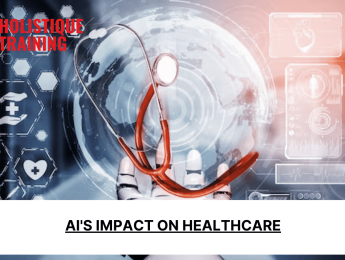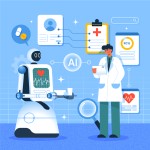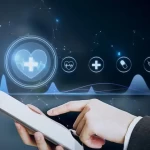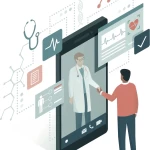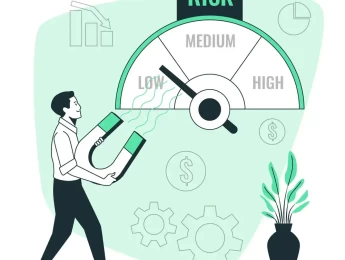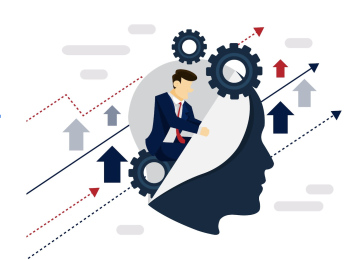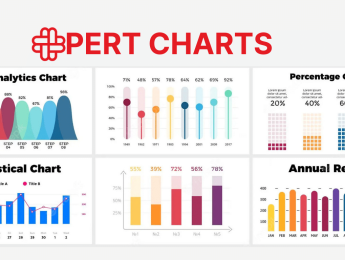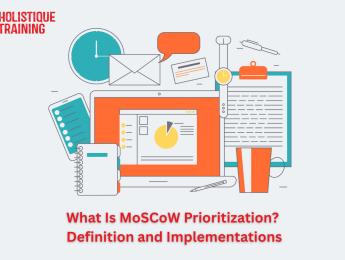- Table of Contents
- Introduction
- Types of AI Relevant to Healthcare
- How Is AI Changing Healthcare Practices?
- Enhanced Diagnostics
- Personalised Treatment Plans
- Drug Discovery Acceleration
- Predictive Analytics for Public Health
- Telemedicine and Remote Monitoring Expansion
- Enhanced Electronic Health Records (EHRs)
- Genomic Medicine Advancements
- Healthcare Chatbots and Virtual Assistants
- Benefits of Using AI in Healthcare
- Improved Accuracy
- Enhanced Efficiency
- Early Disease Detection
- Cost Reduction
- Personalised Medicine
- Improved Patient Engagement and Experience
- Optimised Resource Allocation
- Potential Risks of Using AI in Healthcare
- Data Privacy and Security
- Bias and Fairness
- Reliability and Accountability
- Healthcare Professional Adaptation
- Ethical Considerations When Using AI in Healthcare
- Informed Consent
- Fairness and Bias Mitigation
- Transparency
- The Future of AI in the Healthcare Sector
- Predictive Medicine
- Drug Discovery Revolution
- AI-Enhanced Surgery
- Telemedicine Expansion
- Human-AI Collaboration
- AI in Mental Health Care
- AI and Global Health Equity
- Conclusion
Introduction
The integration of Artificial Intelligence (AI) into the healthcare sector has ignited a revolutionary transformation in the way medical professionals diagnose, treat, and manage patient care. AI's rapid evolution has paved the way for enhanced decision-making, improved patient outcomes, and more efficient healthcare processes. In this comprehensive exploration, we will delve into the types of AI relevant to healthcare, the profound changes it has instigated in medical practices, the myriad benefits it brings, potential risks to be wary of, ethical considerations to navigate, and finally, gaze into the promising future of AI in the healthcare sector.
Types of AI Relevant to Healthcare
Before we plunge into the extensive impact of AI in healthcare, it's crucial to understand the different types of AI that play a significant role in this domain.
Table 1: AI relevant to healthcare
Type of AI | Description |
Narrow/Weak AI | This AI is designed for specific tasks, such as medical image analysis. |
General/Strong AI | Capable of performing tasks that require human-like intelligence. |
Machine Learning | A subset of AI that uses algorithms to improve task performance. |
In healthcare, narrow AI, particularly machine learning, is the most prevalent form. These algorithms excel in tasks like image recognition, natural language processing (NLP), and predictive analytics, making them indispensable tools for healthcare professionals.
How Is AI Changing Healthcare Practices?
AI is revolutionising healthcare practices in various ways, reshaping the landscape of medical diagnosis, treatment, and patient care. Here, we delve deeper into the transformative impact of AI in healthcare:
Enhanced Diagnostics
AI has ushered in a new era of diagnostic accuracy. Medical imaging, in particular, has witnessed a remarkable transformation. AI-driven algorithms can analyse X-rays, MRIs, and CT scans with exceptional precision and speed. For instance, they can detect early signs of diseases like cancer or fractures, enabling timely intervention and improving patient outcomes. This not only reduces the chances of misdiagnosis but also empowers radiologists and other healthcare professionals with valuable insights, leading to more informed decisions.
Personalised Treatment Plans
One of the most promising aspects of AI in healthcare is its ability to tailor treatment plans to individual patients. Machine learning algorithms can process vast datasets, including a patient's medical history, genetics, lifestyle, and treatment responses. In fields like oncology, AI plays a crucial role in designing personalised cancer therapies. By analysing genetic markers and treatment outcomes, AI can recommend treatment strategies that maximise effectiveness while minimising side effects. This level of personalisation not only improves patient outcomes but also reduces the trial-and-error approach often seen in traditional medicine.
Drug Discovery Acceleration
The traditionally slow and expensive process of drug discovery has found a powerful ally in AI. Machine learning models can predict potential drug candidates and simulate their interactions with biological targets. This accelerates the development of new medications, shortening the timeline from initial discovery to clinical trials. AI-driven drug discovery not only saves time and resources but also holds the promise of finding treatments for rare or neglected diseases that might have otherwise gone unnoticed.
Predictive Analytics for Public Health
AI has proven invaluable in predicting disease outbreaks and patient admissions accurately. By analysing vast amounts of data, including historical health records, demographic information, and environmental factors, AI models can forecast disease trends. This capability is particularly critical during public health crises, such as the COVID-19 pandemic. AI-driven predictive analytics enable healthcare providers and government agencies to allocate resources efficiently, prepare for surges in patient numbers, and implement preventive measures in a timely manner.
Telemedicine and Remote Monitoring Expansion
AI-driven telemedicine platforms have made healthcare more accessible and convenient. Remote monitoring devices equipped with AI capabilities can continuously collect and analyse patient data. This includes monitoring vital signs, tracking medication adherence, and identifying early warning signs of health deterioration. These technologies not only empower patients to take control of their health but also enable healthcare providers to intervene proactively, reducing hospital readmissions and improving overall patient care. For instance, wearable devices like the Apple Watch and Fitbit can monitor vital signs and send alerts to healthcare providers in case of anomalies, allowing for proactive care.
Enhanced Electronic Health Records (EHRs)
AI is transforming how healthcare organisations manage electronic health records (EHRs). Machine learning algorithms can extract valuable insights from EHR data, helping clinicians make more informed decisions. For example, AI can identify patterns in patient data that suggest a potential adverse reaction to a medication, allowing healthcare providers to adjust treatment plans promptly. Moreover, AI can streamline administrative tasks related to EHRs, such as documentation and billing, freeing up healthcare professionals to focus more on patient care.
Aspect | Healthcare with AI | Healthcare without AI |
Diagnosis & Detection | AI-powered imaging and analysis can detect diseases earlier and more accurately. | Relying solely on human expertise may lead to delays or missed diagnoses. |
Treatment Planning | AI helps personalize treatments based on patient data and historical trends. | Treatment decisions are based on doctors' experience and generalized protocols. |
Administrative Tasks | AI automates paperwork, billing, and scheduling to reduce workload. | Manual processes can be time-consuming and prone to errors. |
Drug Discovery & Research | AI speeds up drug discovery and predicts drug effectiveness. | Traditional research methods take longer and require extensive human effort. |
Patient Monitoring | AI-powered wearables and telemedicine provide real-time insights for proactive care. | Patients must rely on scheduled visits and self-reporting symptoms. |
Healthcare Accessibility | AI-driven chatbots and virtual assistants offer medical advice remotely. | Access to healthcare is limited to physical visits and human availability. |
Cost Efficiency | AI reduces costs by streamlining operations and improving efficiency. | Healthcare costs can be high due to labor-intensive processes. |
Table 2: Healthcare with AI vs. without AI
Genomic Medicine Advancements
AI is playing a pivotal role in unlocking the potential of genomic medicine. By analysing vast genomic datasets, AI can identify genetic markers associated with various diseases and conditions. This information is invaluable for both diagnosis and treatment selection. AI-powered genomic analysis allows healthcare providers to offer truly personalised medicine, matching treatments to a patient's unique genetic profile, leading to more effective and tailored healthcare interventions.
Healthcare Chatbots and Virtual Assistants
AI-driven healthcare chatbots and virtual assistants are becoming increasingly sophisticated. These virtual companions can engage with patients in natural language, answering medical questions, scheduling appointments, and even providing mental health support. They are available 24/7, ensuring that patients have access to medical information and assistance whenever they need it. Additionally, these chatbots can integrate with electronic health records, enabling seamless information exchange between patients and healthcare providers for a more holistic approach to care.
One remarkable example is Ada Health, a virtual assistant that uses AI to help users identify and understand their symptoms. Ada's AI-driven chatbot asks users a series of questions about their symptoms and medical history to provide potential diagnoses and recommendations. It can analyse millions of medical data points in seconds, making it a valuable resource for patients seeking immediate medical guidance, especially in remote or underserved areas where access to healthcare professionals may be limited.
AI's impact on healthcare practices is multifaceted, touching nearly every aspect of the medical field. From diagnosing diseases more accurately and tailoring treatments to individuals to expediting drug discovery and enhancing the management of patient records, AI continues to shape a more efficient, effective, and patient-centred healthcare system.
Benefits of Using AI in Healthcare
The adoption of AI in healthcare offers a myriad of benefits that positively impact both healthcare providers and patients. Let's explore these advantages in greater detail:
Improved Accuracy
AI algorithms exhibit unparalleled accuracy in various healthcare tasks, such as medical imaging interpretation, reducing the risk of misdiagnosis and improving treatment decisions. For instance, AI-powered diagnostic tools can detect anomalies in medical images with a level of precision that often surpasses human capabilities. This enhanced accuracy translates into more reliable diagnoses and more effective treatment strategies.
AI algorithms can continuously learn and adapt, improving their accuracy over time. They can analyse vast datasets and detect subtle patterns that might go unnoticed by human observers, contributing to early disease detection and more precise treatment recommendations.
Enhanced Efficiency
Automation of administrative tasks and data analysis allows healthcare professionals to spend more time on patient care, increasing overall efficiency. Administrative tasks, such as paperwork and appointment scheduling, can be time-consuming and divert attention away from patients. AI solutions, like chatbots and virtual assistants, can handle these administrative responsibilities, streamlining workflows and freeing up healthcare staff to focus on providing quality care.
AI can optimise resource allocation within healthcare institutions. It can predict patient admissions, helping hospitals and clinics allocate staff and resources more effectively. This proactive approach reduces waiting times and ensures that patients receive timely care.
Early Disease Detection
AI's ability to identify subtle patterns in patient data enables early disease detection, potentially saving lives through timely interventions. AI-driven predictive models can analyse patient records, vital signs, and test results to detect deviations from the norm. By identifying early warning signs, healthcare providers can intervene before conditions worsen, leading to better patient outcomes and reduced healthcare costs.
Early detection is especially crucial for chronic conditions like diabetes and hypertension. AI can monitor patients' health parameters continuously and send alerts if any values fall outside the safe range, allowing for immediate intervention and proactive management.
Cost Reduction
By streamlining processes and reducing errors, AI can help healthcare institutions save costs while maintaining high-quality care. For example, AI-driven automation of administrative tasks minimises the need for manual data entry, reducing the risk of errors and eliminating the associated labour costs. Additionally, AI can optimise inventory management, ensuring that healthcare facilities have the right supplies on hand when needed, reducing waste and expenses.
AI's predictive analytics can assist healthcare providers in optimising their resource allocation further. By forecasting patient admissions and disease outbreaks, hospitals can adjust staffing levels and resource allocation, minimising overstaffing during quiet periods and understaffing during busy times, ultimately leading to cost savings.
Personalised Medicine
Tailoring treatment plans based on individual patient data ensures more effective treatments and fewer adverse effects. AI analyses a patient's medical history, genetics, lifestyle, and treatment responses to recommend treatment strategies that are most likely to succeed for that specific individual. This personalisation not only improves treatment outcomes but also minimises the risk of adverse reactions to medications.
AI can facilitate the development of pharmacogenomics, a field that tailors drug prescriptions to a patient's genetic profile. This precision medicine approach ensures that patients receive medications that are not only effective but also safe, considering their unique genetic makeup.
Improved Patient Engagement and Experience
AI-powered healthcare applications can enhance patient engagement and experience by providing personalised health insights, reminders, and feedback. Patients can use mobile apps and wearable devices integrated with AI to monitor their health, track medication adherence, and receive real-time guidance. This active involvement in their own healthcare can lead to better adherence to treatment plans and a more positive patient experience.
Optimised Resource Allocation
As mentioned above, AI can help healthcare institutions optimise resource allocation, from staffing levels to equipment usage. Predictive analytics can forecast patient admissions, enabling hospitals to adjust their staffing and resource allocation accordingly. Additionally, AI-driven maintenance schedules for medical equipment can reduce downtime and ensure that critical machinery is always available for patient care, maximising operational efficiency.
In summary, the benefits of using AI in healthcare extend far beyond mere automation. AI enhances accuracy, efficiency, and early detection, ultimately leading to better patient outcomes. Additionally, it reduces costs, streamlines administrative tasks, and enables personalised medicine, transforming healthcare into a more effective, accessible, and patient-centred industry. As AI continues to evolve, its role in healthcare will become increasingly indispensable, offering a brighter and more efficient future for patients and healthcare providers alike.
Potential Risks of Using AI in Healthcare
While the integration of AI in healthcare is incredibly promising, it also comes with its fair share of challenges and risks.
Data Privacy and Security
The vast amount of sensitive patient data processed by AI systems raises concerns about data privacy and the potential for breaches.
The infamous 2015 Anthem breach exposed the records of 78.8 million patients, highlighting the need for robust data security measures in the healthcare sector.
Bias and Fairness
AI algorithms can inherit biases from the data they are trained on, which may result in unequal healthcare outcomes for different demographic groups.
A study published in the journal Science found that AI algorithms used in healthcare exhibited racial and ethnic biases, leading to disparities in the treatment recommendations provided to different patient groups.
Reliability and Accountability
In critical medical decisions, there's a need for transparency and accountability. If an AI system makes a mistake, it's essential to pinpoint responsibility.
The case of a misdiagnosis by an AI system in a Chinese hospital led to a public outcry and raised questions about who should be held accountable for such errors.
Healthcare Professional Adaptation
The rapid pace of AI development requires healthcare professionals to continually update their skills and adapt to new technologies, which can be a challenge.
The American Medical Association has initiated programmes to help physicians acquire AI-related skills, recognising the importance of preparing healthcare workers for the AI-driven future.
Ethical Considerations When Using AI in Healthcare
Navigating the ethical landscape of AI in healthcare is essential to ensure that these technologies serve humanity's best interests.
Informed Consent
Patients should be adequately informed about how AI will be used in their care, and their consent should be obtained.
Medical institutions like the Cleveland Clinic have adopted policies that ensure patients are informed about the use of AI in their treatment and have the option to decline AI-based interventions.
Fairness and Bias Mitigation
Developers should take active measures to reduce bias in AI algorithms and ensure that healthcare outcomes are equitable.
Organisations like the Algorithmic Justice League advocate for fairness in AI and have developed tools to audit and mitigate bias in healthcare algorithms.
Transparency
AI systems should be transparent in their decision-making processes to provide healthcare professionals with insights into how decisions are reached.
The European Union's General Data Protection Regulation (GDPR) includes provisions that require AI systems to provide explanations for their decisions, enhancing transparency and accountability.
The Future of AI in the Healthcare Sector
The journey of AI in healthcare has only just begun, and the future holds immense promise.
Predictive Medicine
AI will play a pivotal role in predicting diseases even before symptoms manifest, allowing for proactive preventive measures.
According to a LinkedIn article, researchers at Google Health are developing AI models that can predict cardiovascular diseases with an accuracy of 70%, enabling early interventions and lifestyle changes.
Drug Discovery Revolution
The drug development process will continue to see radical changes, with AI-driven simulations identifying drug candidates at an unprecedented pace.
AI-driven drug discovery companies like DeepMind and Atomwise are at the forefront of transforming drug development, significantly reducing the time and cost required to bring new medications to market.
AI-Enhanced Surgery
Surgeons will increasingly rely on AI-assisted robotic systems for precision surgeries, reducing invasiveness and recovery times.
Robotic surgical systems like the da Vinci Surgical System already utilise AI to enhance surgeon capabilities and improve patient outcomes.
Telemedicine Expansion
Telemedicine will become even more prevalent, offering healthcare access to remote and underserved populations.
The COVID-19 pandemic accelerated the adoption of telemedicine, and AI-driven telehealth platforms like Teladoc are expected to continue growing, providing healthcare to millions.
Human-AI Collaboration
Healthcare professionals will collaborate seamlessly with AI systems to provide the best possible care, leveraging the strengths of both.
IBM's Watson for Oncology is a prime example of this collaboration, providing oncologists with AI-generated treatment recommendations based on extensive medical literature and patient data.
AI in Mental Health Care
While AI's impact on physical health is widely recognised, its role in mental health care is an intriguing and growing field of study. Mental health conditions like depression and anxiety affect millions worldwide, and AI has the potential to revolutionise the way these conditions are diagnosed and treated.
AI-powered chatbots and apps, such as Woebot and Wysa, provide users with immediate access to mental health support. These virtual companions use natural language processing and cognitive-behavioural therapy techniques to engage with users, offering emotional support and coping strategies.
Additionally, AI algorithms can analyse social media and text data to detect signs of mental health distress in individuals. By monitoring language patterns, sentiment, and even emojis, AI can identify potential mental health concerns and offer intervention or support resources.
The integration of AI into mental health care is not without its challenges, particularly in ensuring privacy and data security. However, the potential benefits of early detection, timely intervention, and improved access to mental health services make AI a promising tool in addressing the global mental health crisis.
AI and Global Health Equity
AI in healthcare has the potential to bridge gaps in global health equity by providing access to quality medical services in underserved regions. Telemedicine and AI-driven diagnostic tools can reach remote communities and provide healthcare where traditional infrastructure is lacking.
For example, in rural areas of sub-Saharan Africa, where access to healthcare is limited, organisations like the Botnar Foundation are leveraging AI to develop mobile applications that connect patients with healthcare professionals. These apps use AI to help diagnose diseases like malaria and provide treatment recommendations, improving health outcomes in resource-constrained settings.
Furthermore, AI can assist in monitoring disease outbreaks on a global scale. Machine learning models can analyse data from various sources, including social media, news reports, and healthcare facilities, to detect and predict the spread of infectious diseases. This early warning system can be crucial in coordinating a rapid response to prevent epidemics.
As AI technologies continue to advance, their potential to address disparities in healthcare access and outcomes becomes increasingly significant. By focusing on global health equity, AI can contribute to a more inclusive and healthier world for all.
Conclusion
AI's integration into healthcare is reshaping the medical landscape as we know it. With the potential to enhance diagnostics, treatment, and patient outcomes, AI holds the key to a brighter and more efficient future for healthcare. However, it is essential to address the accompanying risks and ethical concerns to ensure that AI serves the best interests of patients and society. As we step into the future, AI will continue to be a transformative force in healthcare, promising better health and well-being for all. The journey has only just begun, and the possibilities are limitless.
Finally, if you're eager to unlock the boundless potential of healthcare in the digital age, join our transformative course, ‘Healthcare in the Digital Age.’ Embark on a journey where you'll explore the incredible impact of AI and become a pioneer in shaping the future of healthcare. Don't miss the opportunity to be part of this exciting evolution!


